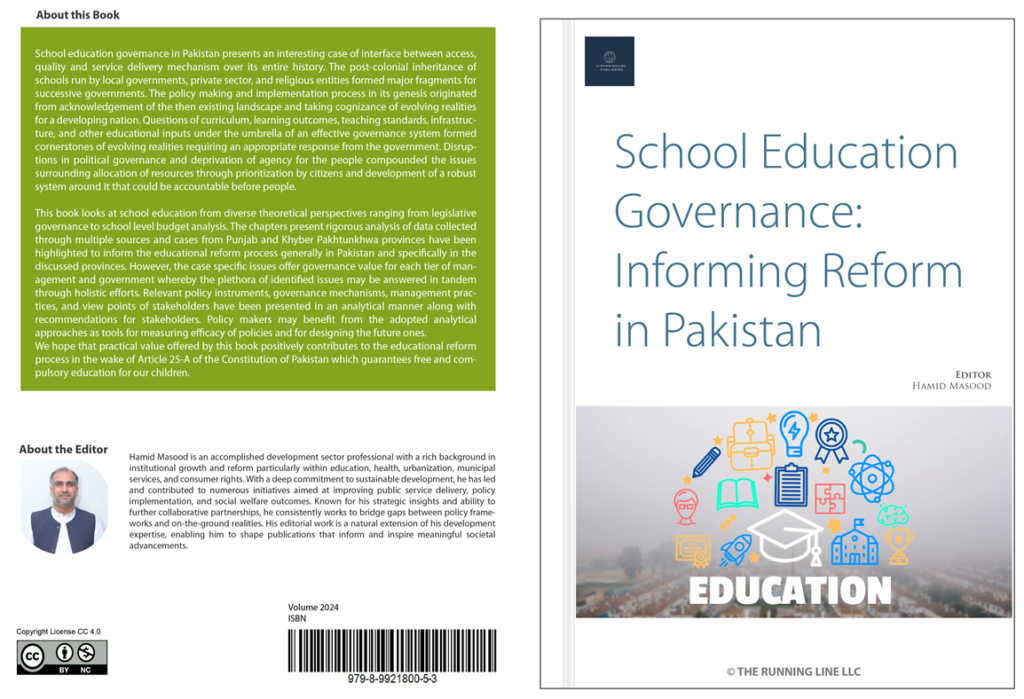
School Education Governance
Informing Reform in Pakistan
Edited by
Hamid Masood
Release Date: October, 2024
Copyright: 2024
Pages: 161
ISBN: 979-8-9921800-5-3
Book Description
School education governance in Pakistan presents an interesting case of interface between access, quality and service delivery mechanism over its entire history. The post-colonial inheritance of schools run by local governments, private sector, and religious entities formed major fragments for successive governments. The policy making and implementation process in its genesis originated from acknowledgement of the then existing landscape and taking cognizance of evolving realities for a developing nation. Questions of curriculum, learning outcomes, teaching standards, infrastructure, and other educational inputs under the umbrella of an effective governance system formed cornerstones of evolving realities requiring an appropriate response from the government. Disruptions in political governance and deprivation of agency for the people compounded the issues surrounding allocation of resources through prioritization by citizens and development of a robust system around it that could be accountable before people.
This book looks at school education from diverse theoretical perspectives ranging from legislative governance to school level budget analysis. The chapters present rigorous analysis of data collected through multiple sources and cases from Punjab and Khyber Pakhtunkhwa provinces have been highlighted to inform the educational reform process generally in Pakistan and specifically in the discussed provinces. However, the case specific issues offer governance value for each tier of management and government whereby the plethora of identified issues may be answered in tandem through holistic efforts. Relevant policy instruments, governance mechanisms, management practices, and view points of stakeholders have been presented in an analytical manner along with recommendations for stakeholders. Policy makers may benefit from the adopted analytical approaches as tools for measuring efficacy of policies and for designing the future ones.
We hope that practical value offered by this book positively contributes to the educational reform process in the wake of Article 25-A of the Constitution of Pakistan which guarantees free and compulsory education for our children.
About Editor
Hamid Masood is an accomplished development sector professional with a rich background in institutional growth and reform particularly within education, health, urbanization, municipal services, and consumer rights. With a deep commitment to sustainable development, he has led and contributed to numerous initiatives aimed at improving public service delivery, policy implementation, and social welfare outcomes. Known for his strategic insights and ability to further collaborative partnerships, he consistently works to bridge gaps between policy frameworks and on-the-ground realities. His editorial work is a natural extension of his development expertise, enabling him to shape publications that inform and inspire meaningful societal advancements.
